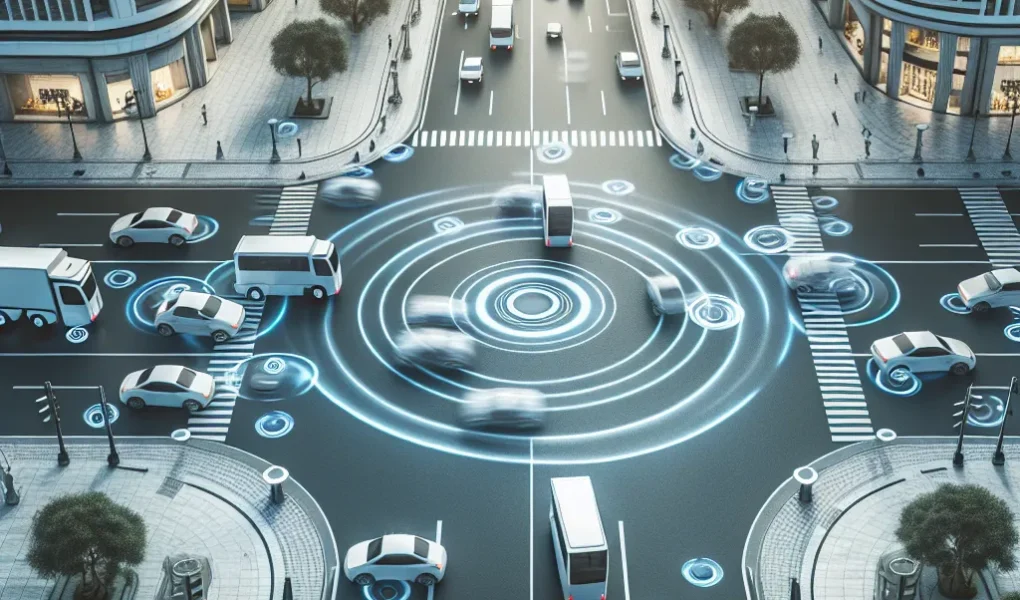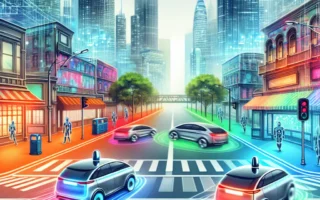The Future of Transportation: Advancements in Autonomous Vehicles
Advancements in autonomous vehicles are set to revolutionize the future of transportation, with significant impacts on both the transportation industry and society at large. The rapid development of self-driving technology is poised to usher in a new era of mobility, offering increased safety, efficiency, and convenience.
As autonomous vehicles continue to be refined and integrated into transportation systems, they have the potential to reduce traffic congestion, optimize routes, and minimize accidents caused by human error. This could lead to a substantial decrease in travel times and fuel consumption, resulting in a more sustainable and cost-effective transportation network.
Besides the immediate benefits to commuters, advancements in autonomous vehicles are also expected to bring about profound societal changes. With the prospect of shared autonomous fleets, car ownership may decline, freeing up urban space currently devoted to parking. This shift could transform urban landscapes, creating opportunities for green spaces, pedestrian zones, and alternative forms of public infrastructure.
The widespread adoption of autonomous vehicles may also have far-reaching implications for employment, as it could potentially disrupt industries such as taxi services, trucking, and delivery. However, it also presents new opportunities for job creation in areas such as vehicle maintenance, remote monitoring, and software development.
While the future of transportation with autonomous vehicles holds great promise, it also poses challenges related to regulation, cybersecurity, and public acceptance. Addressing these issues will be crucial in ensuring a smooth transition to an autonomous future that maximizes the benefits for society while minimizing potential drawbacks.
Societal Implications of Autonomous Vehicle Advancements
As advancements in autonomous vehicles continue to progress, the societal implications of this technology cannot be overlooked. The widespread adoption of autonomous vehicles is projected to have a transformative impact on transportation and society as a whole. One of the key implications of autonomous vehicle advancements is the potential to enhance road safety. With the elimination of human error, which is a leading cause of accidents, autonomous vehicles have the potential to significantly reduce the number of traffic-related injuries and fatalities.
Furthermore, the widespread integration of autonomous vehicles could lead to a shift in urban planning and infrastructure development. As these vehicles become more prevalent, there may be a decreased demand for parking spaces in urban areas, as autonomous vehicles can be in constant use or stored in centralized locations. This could potentially free up valuable urban space for other purposes, such as parks or commercial developments.
In addition, the advent of autonomous vehicles may also have significant implications for employment and the labor market. As autonomous technology continues to advance, there may be a shift in the demand for certain types of jobs, particularly those related to transportation and driving. While new job opportunities may arise in the development, maintenance, and oversight of autonomous vehicles, the displacement of traditional driving-related jobs could present challenges for the workforce.
Moreover, the widespread adoption of autonomous vehicles may also have implications for environmental sustainability. The potential for more efficient driving patterns, reduced traffic congestion, and the integration of electric propulsion systems in autonomous vehicles could contribute to a decrease in carbon emissions and overall environmental impact.
Overall, the societal implications of autonomous vehicle advancements are multifaceted and far-reaching. While the potential benefits in terms of road safety, urban planning, and environmental sustainability are significant, careful consideration and planning are required to address the potential societal disruptions and challenges that may accompany this technological shift.
Transforming the Way We Travel: Autonomous Vehicles in Modern Society
Advancements in autonomous vehicles are transforming the way we travel and are poised to have a significant impact on transportation and society. These self-driving vehicles have the potential to revolutionize the modern society by offering new levels of convenience, safety, and efficiency in transportation.
The integration of autonomous vehicles into modern society has the potential to reshape the way people commute, travel, and conduct business. With the development of autonomous technology, traditional modes of transportation such as personal cars, taxis, and public transport are likely to undergo significant transformations. The concept of car ownership may shift as autonomous vehicles provide on-demand transportation services, reducing the need for individual car ownership.
Furthermore, autonomous vehicles have the potential to improve road safety by reducing the number of accidents caused by human error. With advanced sensors, real-time data processing, and sophisticated algorithms, autonomous vehicles can potentially minimize the risk of collisions and improve overall road safety. This transformation in transportation safety can have a significant positive impact on society by reducing traffic fatalities and injuries.
In addition to safety benefits, autonomous vehicles have the potential to enhance overall transportation efficiency. These vehicles can optimize traffic flow, reduce congestion, and improve fuel efficiency through smoother driving patterns. This optimization of transportation resources could lead to reduced travel times and lower environmental impact, ultimately benefiting individuals and society as a whole.
As autonomous vehicles continue to advance and become more integrated into society, it is essential to consider the broader impacts on urban planning, infrastructure, and the economy. There are challenges and opportunities associated with the widespread adoption of autonomous vehicles, and it is crucial for policymakers, urban planners, and industry stakeholders to address these implications proactively.
In summary, the introduction of autonomous vehicles into modern society has the potential to transform the way we travel, offering enhanced safety, efficiency, and convenience. As this technology continues to evolve, it is essential to carefully consider the impacts and opportunities it presents for transportation and society at large.



